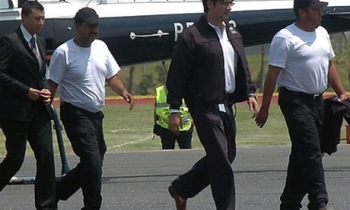Botswana's new Media Practitioners Act is a threat to the rights and free operations and existence of the media in the country, free speech groups have said.
While the law says it is aimed at preserving media freedom, upholding standards of professional conduct and promoting ethical standards and discipline, these good intentions are undermined by many sections of the law which we believe restrict media work and have the effect of cowing media practitioners into fear and self censorship, 28 members of the International Freedom of Expression eXchange (IFEX) have said in a letter to President Ian Khama Seretse Khama.
"We raise particular concern with the setting up, composition and duties of the Media Council and its mandate to monitor journalists, administer accreditation and impose an outside regulatory system on the media. It is troubling that this media council will in fact be appointed by the minister (for communication, science and technology) without any stated criteria for the participation of media practitioners and organisations, which have been relegated to membership and associate membership roles," they said.
While the act states that the Media Council shall be independent, this is not supported by any clause in the act. The council will be financed by government and the councillors wholly appointed by the minister. Thus, the council cannot, by its very nature, be independent. This is further compounded by the fact that the government itself is a media owner. This raises fears that the law is aimed at the private media.
"We call attention to the provisions allowing for the Media Council to monitor the activities of journalists, which are vague and open to abuse. These provisions cast a shadow of fear and self-censorship over the profession, stifling investigative journalism and other critical reporting that is essential to addressing social issues and curbing corruption," the IFEX members wrote.
"Under these circumstances, the Media Council is in our view assuming quasi-judicial powers - a role that is best left to the courts. By setting up a council to preside over media misdemeanours the government is criminalising the profession of journalism. We condemn the inclusion of punitive fines and jail terms of up to three years that are outlined in this legislation and call on your government to decriminalise all press offences, which are better dealt with through self-regulation by the profession," they maintained.
The accreditation scheme laid out under the act is problematic for several reasons. Without stating the intentions behind the provisions on accreditation the law remains vague and open to interpretation. The criteria for accreditation are not outlined nor are the powers of the Media Council in this respect.
"It concerns us that the law provides for the Media Council, rather than employers or media owners, to determine who can work as a journalist in Botswana. The lack of clarity in the legislation leaves open the possibility that the Media Council could actually deny a journalist accreditation. Thus the accreditation scheme outlined is really a form of licensing journalists," the IFEX members asserted.
The law also fails to make clear whether failure to seek accreditation would be considered a punishable violation under these provisions or whether accreditation is automatic once one proves oneself to be a bona fide journalist.
Finally, this law does not take into consideration the current context of media plurality. Beyond professional journalists, citizens themselves are engaging in the information sector through various new technologies and through other independent or community-based forms of mass media. Since the law does not recognise other forms of media it creates barriers to free expression for citizens as well as journalists and media outlets, they said.









